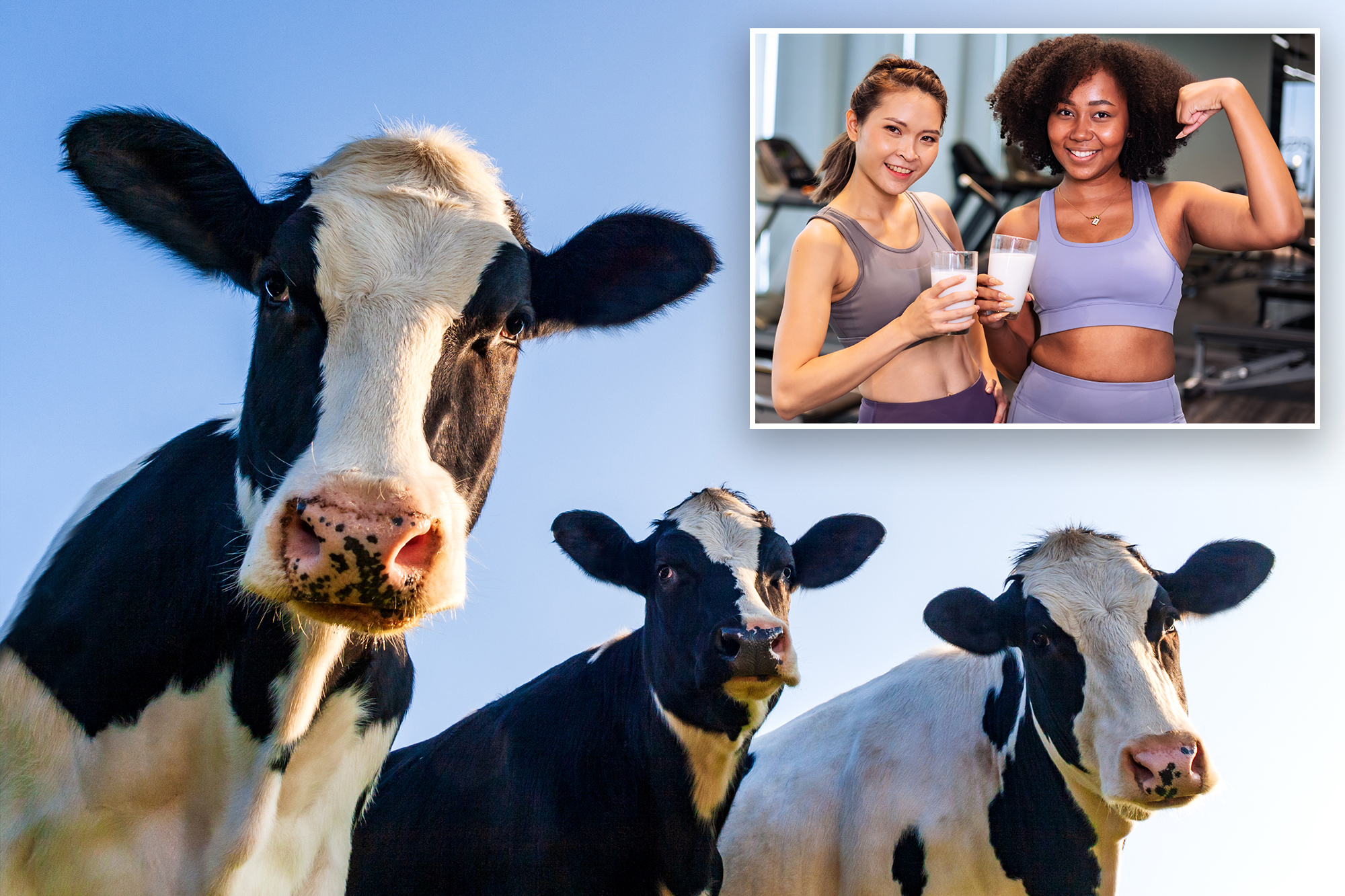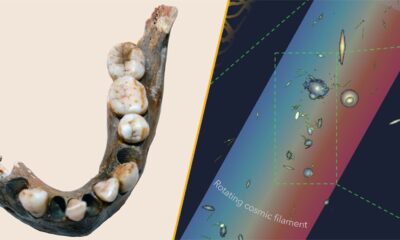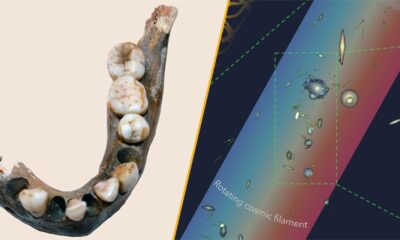Health
Study Reveals Goat Milk May Outperform Cow Milk for Muscle Health

A recent study published in the journal Food Science and Nutrition challenges the long-held belief that cow’s milk is the best choice for promoting strong and healthy bones. Researchers examined the effects of goat and cow milk on aging mice subjected to a drug that induces sarcopenia, a condition characterized by age-related muscle loss. The findings indicate that while both types of milk helped mitigate the loss of lean weight, only goat milk significantly reduced fat weight.
The study highlighted that low-fat goat milk fortified with vitamin D and calcium emerged as the most beneficial option. This research is particularly relevant as sarcopenia affects between 10% and 27% of older adults globally, often leading to increased frailty, falls, and substantial healthcare costs. Current strategies to combat muscle loss rely heavily on resistance training and high-protein diets, with dairy products frequently included. However, this study suggests that goat milk, particularly its fortified varieties, may provide superior benefits for muscle health, gut function, and anti-inflammatory properties compared to conventional cow milk.
Health Benefits of Goat Milk
This is not the first time goat milk has gained attention for its health benefits. Residents of Sardinia, Italy, known for their longevity, attribute part of their long lives to the regular consumption of goat milk. It is believed that the milk’s richness in potassium and stress-relieving tryptophan contributes to their health. Notably, goat milk contains approximately 33% more potassium per serving than cow milk, which is essential for maintaining fluid balance, supporting heart health, and ensuring proper muscle function.
In addition to its potassium content, goat milk is considered easier to digest due to smaller fat globules and lower levels of the allergenic A1 casein protein. This characteristic makes it less inflammatory and better tolerated by individuals with mild lactose sensitivity. Furthermore, goat milk is naturally higher in bioactive compounds, such as oligosaccharides and medium-chain triglycerides, which provide antioxidant and antimicrobial benefits.
Availability and Market Impact
Consumers looking for goat milk products will be pleased to find them at major grocery retailers, including Whole Foods and Walmart. As demand for alternative dairy options continues to grow, the findings from this study may influence dietary choices and market trends. With a greater awareness of the potential health benefits associated with goat milk, it could emerge as a preferred option for individuals seeking to enhance their muscle health and overall well-being.
The implications of this research extend beyond the laboratory, as healthcare professionals may consider recommending goat milk as part of dietary approaches to prevent sarcopenia and promote better health among older adults. As the understanding of dairy products evolves, consumers are encouraged to explore various options that align with their nutritional needs.
-

 Technology5 months ago
Technology5 months agoDiscover the Top 10 Calorie Counting Apps of 2025
-

 Health3 months ago
Health3 months agoBella Hadid Shares Health Update After Treatment for Lyme Disease
-

 Technology1 week ago
Technology1 week agoOpenAI to Implement Age Verification for ChatGPT by December 2025
-

 Health3 months ago
Health3 months agoErin Bates Shares Recovery Update Following Sepsis Complications
-

 Technology4 months ago
Technology4 months agoDiscover How to Reverse Image Search Using ChatGPT Effortlessly
-

 Health3 months ago
Health3 months agoAnalysts Project Stronger Growth for Apple’s iPhone 17 Lineup
-

 Technology3 months ago
Technology3 months agoElectric Moto Influencer Surronster Arrested in Tijuana
-

 Technology1 month ago
Technology1 month agoDiscover 2025’s Top GPUs for Exceptional 4K Gaming Performance
-

 Technology5 months ago
Technology5 months agoMeta Initiates $60B AI Data Center Expansion, Starting in Ohio
-

 Technology5 months ago
Technology5 months agoRecovering a Suspended TikTok Account: A Step-by-Step Guide
-

 Health5 months ago
Health5 months agoTested: Rab Firewall Mountain Jacket Survives Harsh Conditions
-

 Lifestyle5 months ago
Lifestyle5 months agoBelton Family Reunites After Daughter Survives Hill Country Floods




















